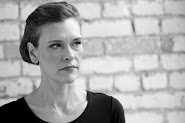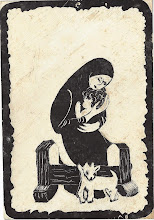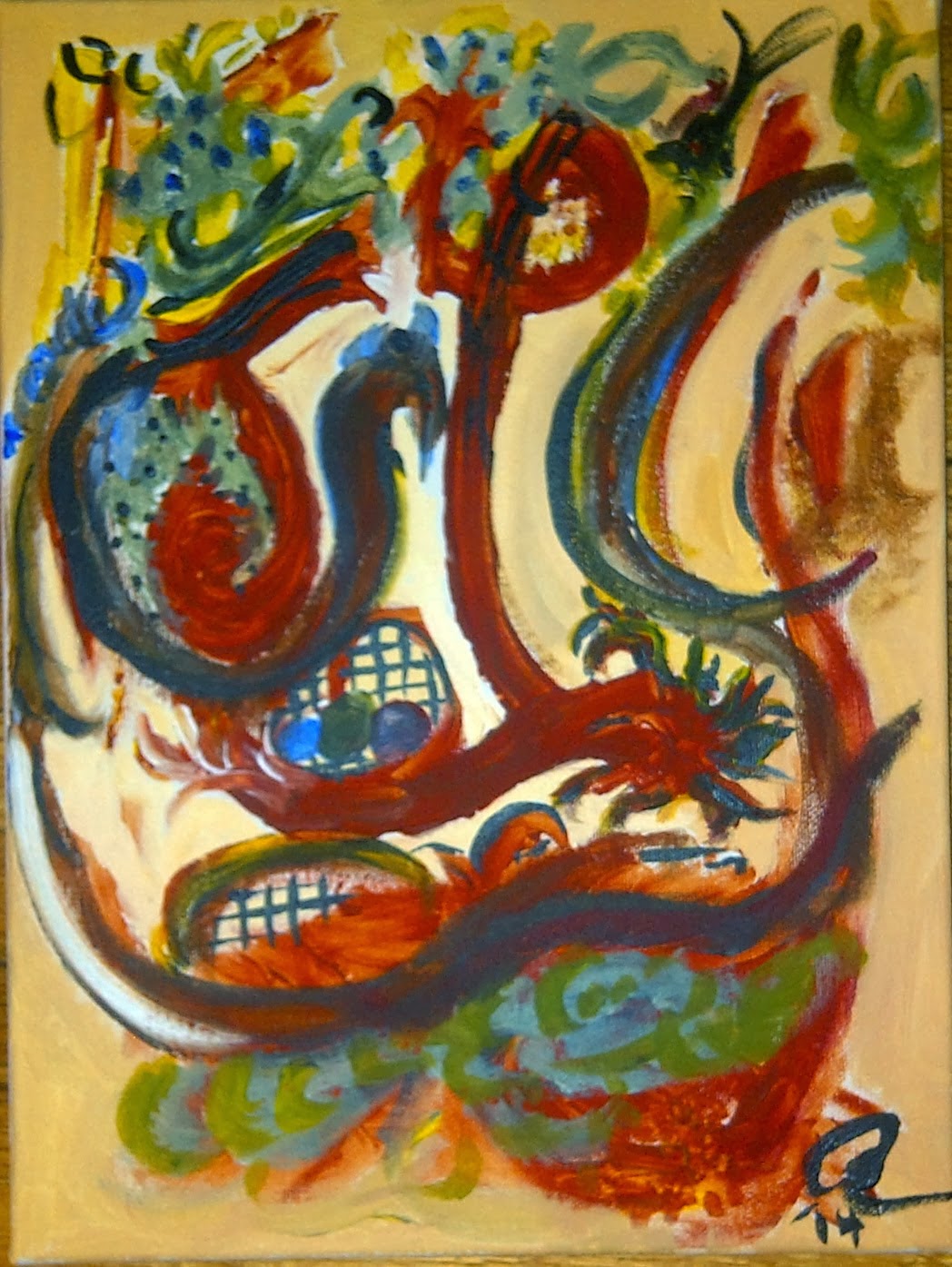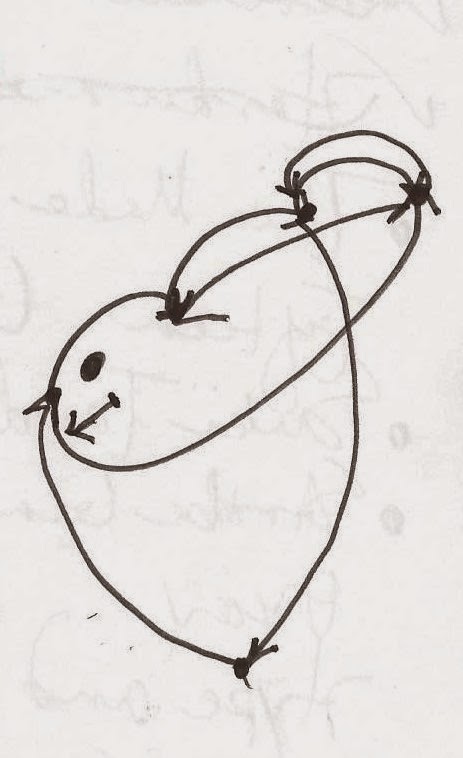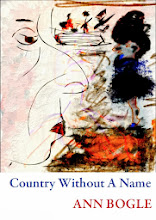Europe's largest lake is our sailing "medium" for today. Later this afternoon, after our Russian class and a film about the czars, we'll reach the Valaam Archipelago where there is a monastery that was destroyed twice by the Swedes when it was located at the border with Sweden. It has been at its present location since the 14th c.
Yesterday we spent the entire day at a resort called Mandrogi. The distance between Mandrogi and Valaam is about 134 miles. There is a vodka museum at Mandrogi. We were all invited to taste four types of vodka -- I tasted two. The first type of vodka was cranberry, and it looked like syrup. I didn't like it. The second type was for colds -- honey and pepper vodka. Someone in our group bought a bottle called "Five Lakes" and served it to us at our cocktail hour on the ship. He had heard from Russians that this type of vodka was among the best.
Shopping in Mandrogi was a little more expensive than we had been accustomed to on the trip so far, but the craftsmen were there in the shops to show us their work and answer questions. Painted wooden dishes, lacquer boxes, linens and wools, bead and leather work -- these were some of the crafted items we saw being created firsthand.
We sail for St. Petersburg tonight and will reach the city by tomorrow morning.
Friday, July 25, 2008
Volga
We've been sailing since Thursday. This is Sunday morning. We've stopped for walking & bus tours in two towns. Mostly, we are visiting Russian orthodox churches and monasteries. Yesterday I asked our guide, Alexander, whether the Russian people were actually religious or were the churches mostly for posterity and tourism. He said that about ten per cent of the Russian population worships regularly, another twenty to forty per cent are atheists, and the rest are believers who do not keep up a religious practice.
Back on the ship, we had a Russian lesson, and our by now customary series of multi-course meals. The vodka called "Imperial" -- I'm told by the Serbian bartender -- is almost as good as Beluga at half the price. Russian cigarettes cost 8 or 10 rubles or about 40 cents per pack, but other things are expensive -- such as a cup of coffee at the luxury hotel in Moscow which costs about $12.
We are at sea in a reservoir built by Stalin in the early 1940s to supply hydroelectric power to Moscow. The great reservoir displaced 700 villages when it was built. It fills the natural river basin of many Russian rivers, including the Volga and the Sheksna. Also, we have passed through a string of locks that lift to the ship to higher elevations.
Back on the ship, we had a Russian lesson, and our by now customary series of multi-course meals. The vodka called "Imperial" -- I'm told by the Serbian bartender -- is almost as good as Beluga at half the price. Russian cigarettes cost 8 or 10 rubles or about 40 cents per pack, but other things are expensive -- such as a cup of coffee at the luxury hotel in Moscow which costs about $12.
We are at sea in a reservoir built by Stalin in the early 1940s to supply hydroelectric power to Moscow. The great reservoir displaced 700 villages when it was built. It fills the natural river basin of many Russian rivers, including the Volga and the Sheksna. Also, we have passed through a string of locks that lift to the ship to higher elevations.
Labels:
autobio.,
CoE,
russian cruise,
story collection
Moscow
The feeling was bittersweet when we left the city to board our ship in the canal. Most of us had not visited Moscow before, but we all felt the city was beautiful, full of museums and monuments, statues of political figures and great writers, and we wondered if we'd ever make it back to this amazing city. In the morning we visited a museum of 18th & 19th c. art and toured the city by bus followed by a fabulous lunch at the Pushkin restaurant. The restaurant seemed very old to us, but is actually only ten years old and has been artificially aged to seem like a relic. The city is teeming with restoration specialists. We then visited a convent where Russian royal daughters spent their lives since no suitable husbands could have been found for them and a cemetery where famous Russians are buried. Then we shopped a bit for amber and fabric before boarding our ship. Once on board, there was an orientation, reception, and gala dinner on the sundeck. This morning we'll hear a lecture about U.S.-Russian relations and later this afternoon,we'll tour the churches of the city, Uglich. I don't understand a word of Russian, or I should say, I only understand one word: nyet. The alphabet is so foreign as to block understanding and create lingusitic isolation. Fortunately, most people speak at least some English. I understand German, too, and our fellow travelers on the ship are a group from Switzerland.
Labels:
autobio.,
CoE,
russian cruise,
story collection
Tuesday, July 22, 2008
Days One & Two
At JFK I met the Yale alumni representative, Nori, and we traveled together to Frankfurt, where I had not been since I was 18 -- had not been in Europe at all since then -- and where I ate Frankfurters at 5 a.m. local time. After our breakfast, we boarded the plane for Moscow. We arrived a few hours later to a sweltering heat. There was no air conditioning in the airport. Our local guide met our plane, rounded a few of us up, and directed us to a v an that took us to our hotel. The hotel -- Le Royal Meridien -- is situated across the street from the gate to Red Square. The views are spectacular, as are the rooms and the service. We met as a group last night -- many of us were jet lagged, but we did our best to keep up the conversation over dinner -- Chicken Kiev at an area restaurant. The women sauntering the street and in the undergrounds are fashion model-look alikes. They wear high heels and walk over cobblestones. It's no wonder Paris designers take inspiration from them. At dinner I met a woman poet from Colombia, a woman scientist from Turkey, and another woman whose brother-in-law is a well-known Russian actor. There are New Yorkers and Southerners, but almost everyone is a Yale graduate. For breakfast I ate herring, sturgeon, salmon, and trout. I felt I had not tasted these fish until then. The flavor is incredible. This morning we tour Red Square, the Kremlin, and State Armory Museum. Tomorrow we leave for another day trip before boarding our boat, the M.S. Volga Dream, to begin our week-long voyage on that river.
Labels:
autobio.,
CoE,
russian cruise,
story collection
Friday, July 18, 2008
How to Reach Me
Waterways of Russia
July 21 to August 3, 2008
Yale Educational Travel
Association of Yale Alumni
Hotel National Le Meridien
July 22 to 24 (2 nights)
15/1, bld. 1 ul. Mokhovaya
125009 Moscow, Russian Federation
Phone: 011-7-495-258-7100
Fax: 011-7-495-258-7100
M.S. Volga Dream
July 24 to 31 (7 nights)
Phone/Fax: 011-7-906-750-2011
Email: info@volgadream.com
Please note: the ship may not receive incoming calls while cruising.
Kempinksi Hotel Moika 22
July 31 to August 3 (3 nights)
Address:
Moika River Embankment 22
191186 St. Petersburg, Russian Federation
Phone: 011-7-812-335-9111
Fax: 011-7-812-335-9190
If you encounter difficulty reaching the ship or hotel or your party, please call Thomas P. Gohagan & Company at (800) 922-3088 for assistance.
July 21 to August 3, 2008
Yale Educational Travel
Association of Yale Alumni
Hotel National Le Meridien
July 22 to 24 (2 nights)
15/1, bld. 1 ul. Mokhovaya
125009 Moscow, Russian Federation
Phone: 011-7-495-258-7100
Fax: 011-7-495-258-7100
M.S. Volga Dream
July 24 to 31 (7 nights)
Phone/Fax: 011-7-906-750-2011
Email: info@volgadream.com
Please note: the ship may not receive incoming calls while cruising.
Kempinksi Hotel Moika 22
July 31 to August 3 (3 nights)
Address:
Moika River Embankment 22
191186 St. Petersburg, Russian Federation
Phone: 011-7-812-335-9111
Fax: 011-7-812-335-9190
If you encounter difficulty reaching the ship or hotel or your party, please call Thomas P. Gohagan & Company at (800) 922-3088 for assistance.
Wednesday, July 09, 2008
Caregiver
A friend commented recently that my work had been "political," and I was struck by the difference between her remark and the remark of a Unitarian pastor who had described me as more spiritual than political. I had turned toward "economics," but not toward politics. I had spent time unable to find paid work in my training and wishing I had majored in Economics and Spanish, wishing I had studied Yiddish and become a translator, wishing I had mastered a language such as Chinese, but these were the wish for respectability earned inside the paid "force." The Catholic men had called me a cunt, a bitch, and a whore. They had leveled threats. We were to get along in "work" environments such as these, where no one, regardless of intention, was entitled to survival, to continuance ... our acceptance of misogyny at its common root that we were all "of woman born"-- in women displayed as envy; in men as hate. The caregiver was a "whore" who earned $15,000 per year -- how men and women were phrasing it. The talk about her behind her back; the resentment at her having food, clothing, and shelter. The pretense that what she gave the invalid for room and board was "sex," not "love," to make up for a lack of knowing or caring, to deny her access to any economy, to enforce the suggestion that only children were worthy of care, that the sick were unneeded and unwanted, that to love them was unnatural. That there was this green crop we were all attending of "children" to replace us at 30.
There is an atmosphere of "hate" that counters our religious tradition to love our neighbor. If poetry loves, then it is poetry to love.
There is an atmosphere of "hate" that counters our religious tradition to love our neighbor. If poetry loves, then it is poetry to love.
Labels:
creative nonfiction,
draft,
essay,
inquiry (cult.)
Subscribe to:
Posts (Atom)

